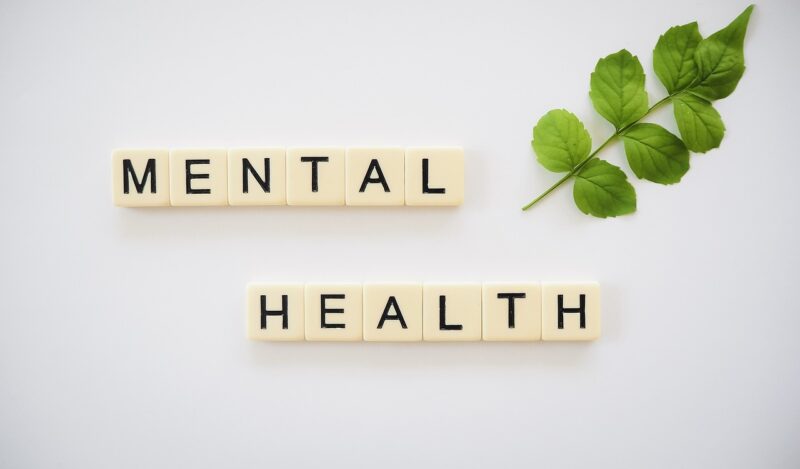Exploring the Relationship Between Video Games and Mental Health
November 14, 2024

Video games have increasingly become a central feature in modern life, engaging people of all ages. As they continue to rise in popularity, discussions regarding their effects on mental health have gained significant attention. While traditionally perceived as mere entertainment, the impact of video games can extend far beyond the screen, sometimes offering therapeutic benefits as well as challenges. This article delves deep into the complex relationship between video games and mental health, exploring both the positive and negative aspects.
1. The Positive Effects of Video Games on Mental Health
Despite the negative stigma often associated with video games, research has shown that they can positively influence mental health in various ways. Here are some of the benefits:
1.1. Cognitive Benefits
Video games can enhance a range of cognitive skills, including:
- Problem-Solving Skills: Many games present puzzles or scenarios that require strategic thinking and quick decisions. This can improve problem-solving capabilities in real-life situations.
- Improved Reaction Time: Action and fast-paced games demand swift reactions, which can translate into enhanced reflexes and hand-eye coordination.
- Multitasking Abilities: Playing games often requires players to juggle multiple tasks simultaneously, improving their multitasking skills.
1.2. Social Connections
Multiplayer and online gaming platforms foster social interaction, connecting individuals from different backgrounds. This sense of community can lead to:
- New Friendships: Gamers often form friendships with other players, providing social support and companionship.
- Reduced Feelings of Isolation: For individuals who may struggle with social anxiety or depression, online gaming can offer a safe space to connect with others and mitigate loneliness.
1.3. Stress Relief and Relaxation
Engaging in video games can serve as an effective form of escapism, allowing players to relieve stress and unwind:
- Therapeutic Outlet: Games can provide an escape from everyday pressures, allowing individuals to immerse themselves in different worlds and narratives.
- Mindfulness through Play: Certain games encourage mindfulness and focus, helping players to manage anxiety and improve mood through immersion in gameplay.
2. The Negative Effects of Video Games on Mental Health
While video games can have positive impacts, there are notable negative influences they can exert on mental health, especially if not moderated:
2.1. Addiction and Compulsive Gaming
Gaming addiction has been recognized as a mental health issue by experts, characterized by:
- Compulsive Play: Players may feel an overwhelming urge to play, leading to neglect of daily responsibilities, relationships, and self-care.
- Withdrawal Symptoms: Like other forms of addiction, individuals may experience irritability, anxiety, and mood swings when not gaming.
2.2. Increased Aggression
Concerns about violent video games have been prevalent, with studies suggesting a link between violent gameplay and aggressive behavior. Key points include:
- Desensitization to Violence: Prolonged exposure to violent content may reduce sensitivity to real-world violence, potentially leading to aggressive attitudes or behaviors.
- Real-Life Consequences: There is ongoing debate about whether playing violent video games translates to increased aggression in real-life situations, highlighting the complexity of this issue.
2.3. Social Isolation
Not all social interactions foster positive relationships. In some cases, excessive gaming can lead to:
- Isolation from Real Relationships: Spending too much time in virtual environments can detract from face-to-face interactions, leading to feelings of loneliness.
- Compromised Communication Skills: Heavy gamers may struggle with interpersonal communication outside gaming scenarios, affecting social skills and relationships.
3. Finding Balance: Healthy Gaming Practices
Understanding the duality of video games necessitates a balanced approach to gaming. Here are some guidelines for healthy gaming:
3.1. Set Time Limits
It’s vital to monitor gaming time to avoid addiction. Establishing clear boundaries can help maintain a healthy balance between gaming and daily responsibilities.
3.2. Choose Games Wisely
Selecting games that foster social interactions or cognitive enhancement may provide more benefits. Opt for games that prioritize teamwork, strategy, or creativity.
3.3. Encourage Offline Activities
Balancing gaming with activities like sports, reading, or family time can lead to a more fulfilling life devoid of excessive screen time.
4. The Future of Gaming and Mental Health
The relationship between video games and mental health continues to evolve:
4.1. Therapeutic Applications
Emerging studies indicate potential therapeutic applications of video games in treating mental illnesses such as PTSD and depression. Researchers are developing games that serve as therapeutic tools to address specific psychological issues.
4.2. Continued Research
As the gaming industry grows, ongoing research into the psychological impacts of gaming becomes crucial. Understanding these effects can guide developers in creating games that prioritize mental health and promote positive experiences.
4.3. Community Initiatives
Many gaming communities are now focusing on mental health awareness, creating platforms for players to discuss their challenges and receive support. Through forums and social media, gamers can promote open discussions about the mental health landscape.
Conclusion
The relationship between video games and mental health is nuanced, marked by both opportunities and challenges. By understanding the complexities and taking a balanced approach to gaming, individuals can leverage the positive aspects while managing potential risks. Whether providing a means for connection, stress relief, or cognitive development, video games can be integrated into a healthy lifestyle. Through awareness, moderation, and mindful engagement, gamers can enjoy gaming as a beneficial part of their lives.






